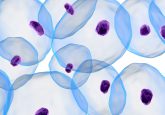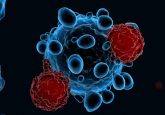CAR-T cell immunotherapy: an interview with Marco Ruella
Dr Marco Ruella obtained his medical degree with honors from the University of Torino (Turin, Italy) in 2007, and completed his specialization in clinical hematology in 2012. He worked as an attending physician at the Hematology and Cell Therapy Division of the Mauriziano Hospital (Turin, Italy) and was an instructor at the Biotechnology School at the University of Torino. From 2012, he was a post-doctoral fellow and then instructor at the University of Pennsylvania (PA, USA) in the Center for Cellular Immunotherapies under the mentorship of Dr Carl June and Dr Saar Gill. In 2018, Dr Ruella was appointed Assistant Professor of Medicine in the Division of Hematology/Oncology and the Center for Cellular Immunotherapies, and Scientific Director of the Lymphoma Program at the Hospital of the University of Pennsylvania.
Dr Ruella’s research is focused on the study of the mechanisms of relapse after chimeric antigen receptor T-cell (CAR-T) immunotherapies with the goal of rationally designing innovative combined immunotherapies for relapsing or refractory leukemia and lymphoma.
Dr Ruella was awarded the inaugural SITC EMD-Serono Cancer Immunotherapy Clinical Fellowship in 2014, the AACR-BMS Oncology Fellowship in Clinical Cancer Research in 2015, the ASH Scholar Award in 2016, a NIH K99-R00 award in 2017, the “Paola Campese” Award for Leukemia Research in 2017, the Cancer Support Community Award in 2018 and more recently the 2018 American Society of Hematology Joanne Levy Memorial Award for Outstanding Achievement. Dr Ruella is the author of numerous peer-reviewed publications on targeted immunotherapies for hematological cancers and is an inventor in several patents on CAR-T therapy.






